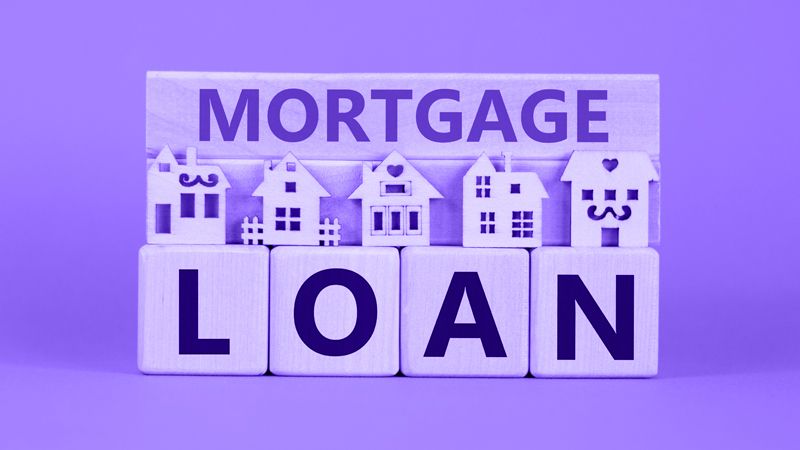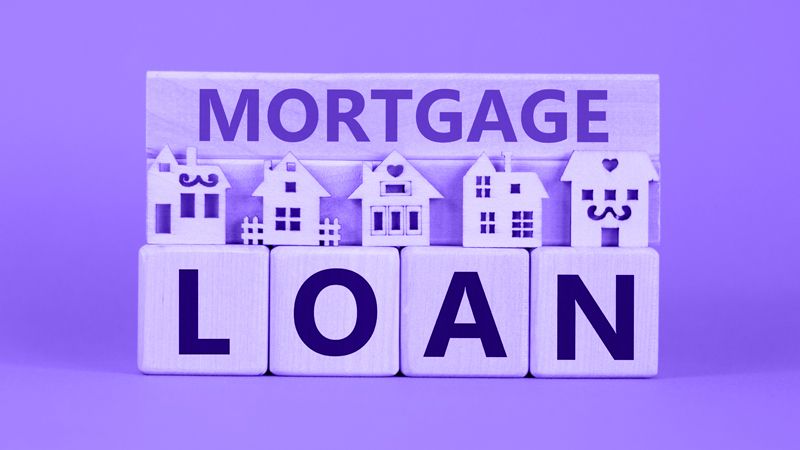Can You Get Secured Loans With Little to No Equity? The Truth Revealed


Many homeowners ask if secured loans remain possible with limited home equity. The cost of home improvements ranges from £500 to £50,000 upwards. Getting adequate funding becomes challenging with minimal property equity.
Your borrowing options become significant whether you plan a small renovation or a major home overhaul. The UK’s secured loan providers evaluate your property’s available equity before setting interest rates. Let’s look at an example – a home worth £250,000 with a current mortgage of £150,000 would have £100,000 ‘equity’. The numbers might not always work in your favour. Homeowners need a mortgage and property equity to qualify for a secured house loan. Secured home improvement loans typically range from £10,000 to £500,000, while unsecured options provide between £1,000 and £15,000.
This piece examines securing loans with minimal equity and explores alternative financing options like bridging loans. You’ll learn practical steps that improve approval chances when equity remains limited.
What is equity and why does it matter for secured loans?
Equity shows how much of your property you actually own. It’s the gap between your property’s current market value and any debts secured against it. Learning about equity is a simple necessity to think about secured loans since it affects how much money you can borrow.
How equity is calculated
You can figure out your equity easily:
- Get your property’s current market value (from an estate agent or by checking similar local properties)
- Take away what you still owe on your mortgage and other secured debts
- What’s left is your equity
To name just one example, see a home worth £200,000 with £170,000 left on the mortgage. Your equity would be £30,000, which is 15% of your property’s value. Your equity becomes 100% after paying off your mortgage completely.
Regular mortgage payments and rising property values naturally build your equity. Home improvements can raise your property’s value and boost your equity, too.
Why lenders care about equity
Equity is a vital safety cushion for lenders. Lenders look at your loan-to-value (LTV) ratio when you apply for a secured loan on a house. This ratio compares your desired loan amount to your property’s value.
Your property’s equity works as collateral. Lenders can recover their money from it if you stop making payments. Banks with strong capital are seen as safer by depositors and investors. Properties with higher equity work the same way with lenders.
Higher equity usually means you can borrow more. Lenders let you borrow up to 80-90% of your equity. That’s why secured loans UK providers take time to check your property’s value and remaining mortgage.
Secured loan vs unsecured loan basics
The main difference between these loans is what backs them. A secured loan uses an asset you own as backing, usually your home. This creates a safety net for lenders – they can sell your property to get their money back if you stop paying.
Unsecured loans (or personal loans) don’t need any assets. Lenders have nothing to claim if you default. This makes these loans riskier from their point of view.
This risk gap creates several practical effects:
- Secured loans come with lower interest rates than unsecured ones
- You get larger amounts with secured loans
- Secured loans give you more time to repay
- You need better credit scores for unsecured loans
Your property’s value compared to your outstanding mortgage – your equity – largely decides how much you can borrow through a secured loan. Secured loans are often more available than unsecured ones, even with lower income or credit issues.
Negative equity happens when your mortgage is higher than your property’s worth. This can really limit your options for secured loans.
Can you get a secured loan with little or no equity?
Lenders look at equity as a vital qualifying factor for secured loans. Your property’s equity directly affects your chances of approval and the loan terms you might get.
Minimum equity requirements
Different lenders have their own equity rules in the secured loans UK market. Most banks set minimum levels before they’ll look at your application:
- You’ll need at least 15% equity in your property with most lenders
- Some specialised lenders might work with lower equity levels
- Your Loan-to-Value (LTV) ratios play a huge role in lending decisions—higher ratios could help you borrow more
The equity you have usually limits how much you can borrow. Let’s say you have £10,000 equity in your home – lenders won’t likely approve secured borrowing above this amount. This makes sense because they need enough collateral if you can’t make your payments.
Banks look at several things besides equity when reviewing your secured loan on a house application:
- Your credit score
- How much you earn and can afford
- Why you want to borrow
Your equity remains the backbone of secured lending decisions because it gives lenders the security they need.
What happens if you have no equity?
You can’t get secured loans without equity – it’s that simple. A secured loan needs something to secure it against, and without equity in your property, there’s nothing to use as security.
Want to know if you have equity? Just subtract what you still owe on your mortgage from your property’s current market value. Zero or negative numbers mean you don’t have enough equity for a secured loan.
Homeowners with negative equity face very limited borrowing options. This usually happens when property values drop after purchase or when people haven’t paid much of their high LTV mortgages.
Exceptions and rare cases
Some special cases do exist:
A few specialist lenders might review low equity applications individually. They sometimes look beyond standard requirements and could approve loans even with minimal equity.
Some finance companies market themselves as “low equity loan” providers. These products help newer homeowners who haven’t built up much equity through their mortgage payments yet.
Bridging loans can help if you’re temporarily short on equity. They cost more in interest but offer flexibility during transition periods.
If you have low equity but can handle payments well, you might qualify for second charge mortgages. These work like extra loans secured against your property, just with different lenders than your main mortgage.
People with low equity should look into unsecured borrowing options. Personal loans, credit cards, or overdrafts might work better for you, depending on how much you need and your financial situation.
Related quick help guides:
Alternative options when equity is low
You have several alternative financing options available if traditional secured loans don’t work because of limited equity. These alternatives can help you reach your goals without depending on your property’s equity.
Unsecured personal loans
Secured loans UK providers require collateral, but unsecured personal loans don’t need any. Lenders can’t claim your assets if you stop making payments.
Personal loans give you:
- £1,000 to £15,000 in borrowing amounts
- 1-7 years to repay the loan
- Fixed monthly payments that make budgeting easier
These loans work best for home renovations, car purchases, weddings, or debt consolidation. The interest rates run higher than secured options because lenders take on more risk. Homeowners with poor credit should know that secured loan on house options might give much lower rates than unsecured alternatives, which can go from 40% to 200% APRC.
Credit union loans
Credit unions work as self-help cooperatives where members save together to give each other affordable credit. These unions beat traditional lenders in several ways:
- Interest rates stay capped at 3% monthly
- Lending focuses on community needs with flexible terms
- Poor credit histories often get a second chance
Membership requires a “common bond” with existing members—you might live in the same area, work for the same employer, or belong to the same association. Most credit unions ask members to save money regularly while paying back their loans.
Using a credit card for small projects
Credit cards make sense for home improvements around £1,500 or less. They come with some great perks:
- You might get 0% interest at the start
- Monthly payments can match what you can afford
- Section 75 protects purchases between £100 and £30,000, making card issuers share responsibility with suppliers
Standard interest rates can jump quite high after promotional periods end. The smart move is to clear your balance before any 0% offers run out.
Bridging loans as a short-term solution
Bridging loans help you get by while waiting for other money to come through. These short-term loans usually:
- Start at £10,000 minimum
- Come as “open” (no fixed payback date) or “closed” (fixed payback date)
- Need assets as backup, but not always with high equity
People used these loans to “bridge the gap” between buying a new home and selling their current one. Now they’re popular for property renovations and auction purchases.
Bridging loans cost more than regular financing—lenders charge by the month instead of yearly. Small monthly rate differences can add up fast. A 1% monthly rate equals 12.7% APR, while 2% monthly jumps to 26.8% APR.
Look at all costs and terms carefully to pick the best option for your situation if you’re short on equity.

What lenders look for beyond equity
Lenders look at several key factors besides equity when they process secured loan applications. Your chances of approval go up by a lot if you understand these elements, especially when you have less than ideal equity.
Credit score and history
Your credit profile is the lifeblood of secured lending decisions. Secured loans UK providers don’t focus on credit scores as much as unsecured lenders do, but your financial track record still matters.
Your previous financial behaviour helps lenders predict how reliable you’ll be. Better credit scores usually mean lower interest rates and higher approval odds. The good news is that secured loans are still available even with imperfect credit:
- Some lenders and brokers focus on helping people with less-than-perfect credit scores
- A large amount of equity can help balance out credit issues
- Lenders might view your application more favourably if you explain one-time credit problems
You should check your credit report through major UK credit reference agencies (Experian, Equifax or TransUnion) before applying. This helps you spot and fix any errors that could affect your score.
Income and affordability checks
The Financial Conduct Authority (FCA) requires lenders to do full affordability assessments. These reviews tell lenders if you can handle loan repayments along with your other financial commitments.
Lenders usually ask for:
- Proof of income (payslips for hired workers, tax documents for self-employed)
- Bank statements that show regular income and spending
- Mortgage statements
- Information about expected income changes
- A detailed breakdown of income and expenses
Most secured loan on house providers set borrowing limits at 6-7 times your yearly income. To cite an instance, a family earning £50,000 might borrow up to £350,000 combined between their mortgage and secured loan.
Regular gambling shows up on bank statements and can spook lenders into declining applications.
Collateral alternatives like vehicles or savings
Some lenders accept other assets as security when home equity isn’t enough. These options include:
- Paid-off vehicles (cars or motorcycles)
- Valuable jewellery items
- Savings or investment accounts
- Other valuable items like artwork
Each lender has their own rules about what collateral they’ll accept. The basic rule is that your collateral must be worth at least as much as the loan.
Most lenders won’t take retirement accounts as security. They also tend to offer just a portion of the collateral’s value instead of the full amount.
Your ability to make consistent repayments without financial strain is what lenders care about most, even with alternative collateral.
How to improve your chances of approval
You can take several steps to improve your chances of getting approved for secured loans. Here’s what you can do to strengthen your application, even with limited equity.
Boosting your credit score
Getting on the electoral roll helps verify your identity and address, which helps your score. Regular, timely payments of bills and credit commitments make a big difference. Your credit report shows late or missed payments for six years. Too many credit applications in a short time can suggest money troubles, so keep them minimal. Look for any mistakes in your credit reports from Experian, Equifax, and TransUnion.
Mortgageable offers a free Equifax Credit Report as part of its service, with no obligation to proceed. Something worth considering.
Reducing existing debt
A lower overall debt improves your credit utilisation ratio. Lenders like to see this ratio below 30%. This shows them you manage credit well. Keep your oldest credit accounts open, but think about closing unused ones. A stable income makes your application stronger.
Using a loan eligibility checker
Loan eligibility checks use “soft searches” that won’t hurt your credit score. These tools show how likely you are to get approved before you actually apply. Most secured loans UK providers show your approval chances as a percentage. This helps you avoid applications that might get turned down.
Getting quotes from multiple lenders
Different lenders have different acceptance rules. Banks, credit unions, and online lenders each offer unique options. Look at both interest rates and fees when you compare. Specialist brokers can help find the right options, especially if your situation is complex.
Conclusion
Getting a secured loan with limited equity can be tough, but homeowners have several options. Your equity position is the main thing lenders look at when they review secured loan applications. This means you’ll need to look at other ways to get financing or make your application stronger if you don’t have much equity.
You might want to look beyond secured loans. Personal loans without collateral, credit union loans, or credit cards could work better for smaller projects. Bridge loans could be a short-term answer, though they come with higher rates.
Your credit score will make a big difference in getting approved, whatever path you choose. The best way to improve your chances is to work on your credit score, pay down your debts, and keep a steady income. Loan eligibility checks are a great way to get a clear picture without hurting your credit score.
Smart borrowers always check offers from several lenders. Each lender has their own rules, especially when it comes to limited equity. This gives you the best shot at good terms even with equity limits.
Secured loans usually offer lower rates and bigger amounts, but they need enough equity as backup. Your money situation and what you need will help you decide if a secured loan makes sense or if you should try something else that fits better right now.
Key Takeaways
Understanding your financing options when equity is limited can help you secure the funding you need for home improvements or other major expenses.
• Most lenders require at least 15% equity in your property for secured loans, making them impossible without sufficient collateral backing.
• Unsecured personal loans (£1,000-£15,000) and credit union loans offer viable alternatives when equity is insufficient for secured borrowing.
• Credit scores, income stability, and debt levels significantly impact approval chances, even when equity requirements are met.
• Using eligibility checkers and comparing multiple lenders increases your chances of finding suitable financing despite limited equity.
• Bridging loans provide short-term solutions for temporary equity shortfalls, though they carry higher monthly interest rates than traditional loans.
When equity falls short, focus on strengthening your overall financial profile through credit score improvements and debt reduction. Alternative financing options like personal loans or credit cards for smaller projects can bridge the gap whilst you build equity through mortgage payments and property value appreciation.
















